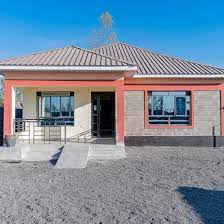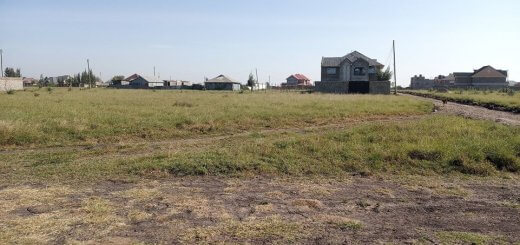Understanding Land Rights in Kenya: A Comprehensive Guide to Land Ownership

 Introduction to Land Rights in Kenya
Introduction to Land Rights in Kenya
Land ownership in Kenya is governed by a complex legal framework that defines various types of rights. Understanding these rights is crucial for anyone involved in buying, selling, or managing land in the country. The Kenyan legal system provides several mechanisms to secure and protect land ownership, each with its specific characteristics and legal implications. This comprehensive guide explores the types of rights to land ownership in Kenya, detailing the key concepts, legal frameworks, and the importance of land documents in establishing and protecting these rights.
Freehold Ownership
Freehold ownership, also known as absolute ownership, grants the landowner full and indefinite rights to the property. This type of ownership is the most comprehensive and provides the owner with the highest degree of control over the land. In Kenya, freehold land is typically found in rural areas and some urban settings. Freehold ownership allows the owner to use, develop, lease, or transfer the land without any time restrictions.
Characteristics of Freehold Ownership
Freehold ownership is characterized by the following:
- Indefinite Duration: The owner holds the land indefinitely, with no expiration date on the ownership rights.
- Full Control: The owner has full control over the use and development of the land, subject to local zoning laws and regulations.
- Transferability: The owner can freely transfer the land through sale, gift, or inheritance.
- Security: Freehold ownership provides a high level of security and stability for the landowner.
Leasehold Ownership
Leasehold ownership involves the right to use and occupy land for a specified period, typically 99 years, after which the lease can be renewed. The government or local authorities usually retain ownership of the land, leasing it to individuals or entities for the lease period. Leasehold properties are common in urban areas where the government holds significant portions of land.
Characteristics of Leasehold Ownership
Leasehold ownership is characterized by the following:
- Fixed Duration: The lease period is fixed, usually for 99 years, with the possibility of renewal upon expiration.
- Government Ownership: The government or local authorities retain ownership of the land, leasing it to individuals or entities.
- Renewal and Compliance: Leaseholders must comply with the terms & conditions of the lease agreement, including paying annual land rent and adhering to development regulations.
- Development Conditions: Leasehold land may have specific conditions for development, which must be met by the leaseholder.
Customary Land Rights
Customary land rights are based on traditional land tenure systems recognized by specific communities. These rights are prevalent in rural areas where land is managed according to customary laws and practices. Customary land rights are often communal and passed down through generations. The Community Land Act 2016 provides the legal framework for the recognition, protection, and registration of community land rights.
Characteristics of Customary Land Rights
Customary land rights are characterized by the following:
- Communal Ownership: Land is owned and managed communally by members of a specific community.
- Traditional Practices: Land tenure is governed by customary laws and practices, which vary between communities.
- Inheritance and Use: Customary land rights are often passed down through generations, with specific rules for inheritance and use.
- Legal Recognition: The Community Land Act 2016 provides a legal framework for registering and protecting customary land rights.
Public Land Rights
Public land is owned by the government and includes land set aside for public use, such as parks, forests, and government buildings. The management and allocation of public land are overseen by the National Land Commission (NLC). Public land cannot be owned privately but can be leased or allocated for specific uses under government regulations.
Characteristics of Public Land Rights
Public land rights are characterized by the following:
- Government Ownership: The government owns and manages public land on behalf of the public.
- Public Use: Public land is set aside for public purposes, including infrastructure, conservation, and recreation.
- Regulation and Allocation: The National Land Commission oversees the allocation and use of public land, ensuring compliance with land laws and policies.
- Non-Transferable: Public land cannot be privately owned or transferred but can be leased or allocated for specific uses.
 Importance of Land Documents in Establishing Rights
Importance of Land Documents in Establishing Rights
Land documents play a crucial role in establishing and protecting land ownership rights in Kenya. These documents provide legal proof of ownership, outline the terms of transactions, and protect the rights of landowners. Key land documents include:
Title Deed
The title deed is the most important document in land ownership. It serves as legal proof of ownership and indicates the holder’s rights to use and transfer the land. Title deeds can be freehold or leasehold, depending on the type of tenure. Ensuring that the title deed is genuine and up-to-date is crucial for securing land rights.
Land Search Certificate
A land search certificate is obtained from the Ministry of Lands and provides information about the current ownership, size, and any encumbrances or legal issues associated with the property. Conducting a land search is essential to verify ownership and ensure that the land is free from disputes.
Sale Agreement
The sale agreement is a legally binding contract between the buyer and the seller, outlining the terms and conditions of the land transaction. It includes details such as the purchase price, payment schedule, and contingencies. The sale agreement should be drafted by a qualified lawyer to ensure compliance with Kenyan law.
Transfer of Title
The transfer of title is the process of changing the ownership of the land from the seller to the buyer. This involves submitting the necessary documents to the Ministry of Lands, including the signed sale agreement, the original title deed, and a duly filled transfer form. The transfer must be registered with the relevant land registry, and the buyer will receive a new title deed in their name once the process is complete.
Land Control Board Consent
For agricultural land transactions, obtaining consent from the Land Control Board (LCB) is mandatory. The LCB ensures that the sale complies with local land use policies and regulations. Both the buyer and seller must appear before the board to seek approval for the transaction.
Clearance Certificates
Several clearance certificates may be required during the land purchase process. These certificates confirm that the property is free from outstanding taxes, rates, and other liabilities. Common clearance certificates include the land rates clearance certificate and the land rent clearance certificate.
Legal Framework Governing Land Rights
Several key pieces of legislation govern land rights in Kenya. These laws provide the framework for land administration, registration, and dispute resolution, ensuring transparency and security in land transactions.
The Constitution of Kenya 2010
The Constitution of Kenya 2010 is the supreme law that outlines the principles of land ownership and management. It emphasizes equitable access to land, sustainable land use, and the protection of land rights. The Constitution also establishes the National Land Commission (NLC), tasked with managing public land on behalf of the national and county governments.
The Land Act 2012
The Land Act 2012 governs the management and administration of land in Kenya. It provides the legal framework for land registration, leasing, and transfer of land. The Act also outlines the procedures for compulsory acquisition of land by the government for public purposes and the principles of land valuation and compensation.
The Land Registration Act 2012
The Land Registration Act 2012 regulates the registration of land and property in Kenya. It establishes the process for registering land titles, leases, and other interests in land. The Act aims to streamline land registration procedures and ensure the accuracy and reliability of land records.
The National Land Commission Act 2012
The National Land Commission Act 2012 establishes the National Land Commission (NLC), which oversees the management and administration of public land. The NLC is responsible for allocating public land, investigating land-related disputes, and ensuring compliance with land laws and policies.
The Community Land Act 2016
The Community Land Act 2016 provides the legal framework for the recognition, protection, and registration of community land rights. It outlines the procedures for the registration of community land, dispute resolution, and the management of communal land resources.
Process of Acquiring Land Rights
Acquiring land rights in Kenya involves several steps, each requiring specific land documents. Here’s a detailed overview of the process:
Conduct a Land Search
Before purchasing land, it is essential to conduct a land search at the Ministry of Lands. This process involves verifying the authenticity of the title deed, checking for any encumbrances, and confirming the current ownership of the property. The land search certificate provides crucial information that helps prevent potential legal issues.
Draft and Sign a Sale Agreement
Once the land search is complete and the property is confirmed to be free from disputes, the buyer and seller can proceed to draft a sale agreement. This document outlines the terms and conditions of the sale, including the purchase price, payment schedule, and any contingencies. It is advisable to have the sale agreement drafted and reviewed by a qualified lawyer to ensure legal compliance.
Obtain Land Control Board Consent
For transactions involving agricultural land, obtaining consent from the Land Control Board (LCB) is mandatory. The LCB reviews the sale to ensure it complies with local land use policies and regulations. Both the buyer and seller must appear before the board to seek approval for the transaction.
Transfer of Title
The transfer of title is the process of changing the ownership of the land from the seller to the buyer. This involves submitting the necessary documents to the Ministry of Lands, including the signed sale agreement, the original title deed, and a duly filled transfer form. The transfer must be registered with the relevant land registry, and the buyer will receive a new title deed in their name once the process is complete.
Obtain Clearance Certificates
Before the transfer of title can be registered, several clearance certificates must be obtained. These include the land rates clearance certificate and the land rent clearance certificate. These certificates confirm that the property is free from outstanding taxes, rates, and other liabilities.
Registration of the Transfer
The final step in acquiring land rights is registering the transfer with the Ministry of Lands. This involves submitting the necessary documents, including the signed sale agreement, transfer form, and clearance certificates. Once the transfer is registered, the buyer will receive a new title deed in their name, officially completing the transaction.

Land Rights
Dispute Resolution in Land Ownership
Disputes over land ownership are common in Kenya, often arising from issues such as fraudulent transactions, unclear boundaries, or conflicting claims. The Kenyan legal system provides several mechanisms for resolving land disputes, including:
The National Land Commission (NLC)
The NLC plays a crucial role in resolving land disputes. It has the authority to investigate land-related conflicts, mediate disputes, and make recommendations for resolving issues. The NLC also oversees the management and allocation of public land, ensuring compliance with land laws and policies.
The Environment and Land Court
The Environment and Land Court is a specialized court established to handle land and environmental disputes. It has jurisdiction over matters related to land ownership, boundaries, and environmental conservation. The court provides a legal avenue for resolving land disputes through litigation.
Alternative Dispute Resolution (ADR)
Alternative Dispute Resolution (ADR) methods, such as mediation and arbitration, offer a more flexible and cost-effective approach to resolving land disputes. ADR allows parties to negotiate and reach mutually acceptable solutions without resorting to litigation. These methods are often faster and less adversarial than traditional court proceedings.
Importance of Accurate Land Records
Maintaining accurate land records is crucial for preventing and resolving land disputes. Accurate records ensure that land ownership is clearly documented, boundaries are well-defined, and transactions are legally recorded. The Ministry of Lands and local land registries are responsible for maintaining and updating land records in Kenya. Property owners should ensure that their land documents are up-to-date and accurately reflect their ownership and property details.
Conclusion
Understanding the types of rights to land ownership in Kenya is essential for anyone involved in land transactions, whether buying, selling, or managing property. The legal framework governing land rights provides various mechanisms to secure and protect ownership, including freehold, leasehold, customary, and public land rights. Key legislation, such as the Constitution of Kenya 2010, the Land Act 2012, the Land Registration Act 2012, and the National Land Commission Act 2012, establishes the principles and procedures for land administration and management.



